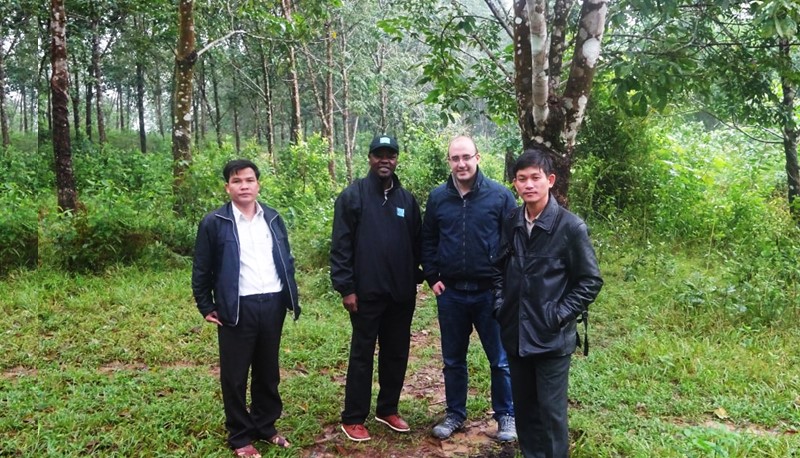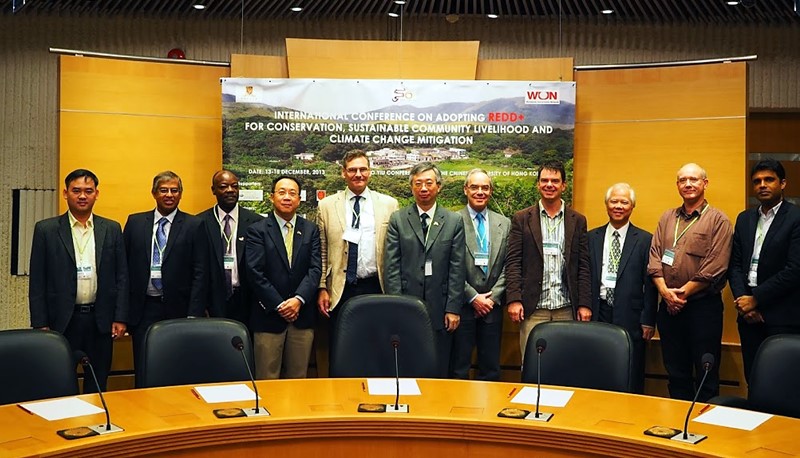
Global collective action to halt deforestation

Prof. Lawal M. Marafa (2nd left) with colleagues in Thuong Nhat commune, Central Vietnam.
In 2012, Prof. Lawal M. Marafa of the Department of Geography and Resource Management was awarded by the Worldwide Universities Network (WUN) Research Development Fund (RDF) for a project titled ‘Adopting REDD+ for Conservation, Sustainable Community Livelihood, and Climate Change Mitigation’, in which he examined the implementation of the REDD+ programme in developing countries and the challenges arising from it. REDD+ refers to Reducing Emissions from Deforestation and Forest Degradation, plus the sustainable management of forests and the conservation and enhancement of forest carbon stocks in developing countries. It is a framework created by the UN Framework Convention on Climate Change Conference of the Parties in 2005.
REDD+ uses a financing mechanism called Verified Emission Reduction credits to incentivise more sustainable forest use. Although the sums of money were not large, they could be life-altering for participants from ethnic minority communities, according to Prof. Marafa.
Prof. Marafa and his team spoke with REDD+ participants in Vietnamese communities that rely on the forest for their livelihoods. The interviews revealed that a number of challenges emerged from the programme, including tension within the communities concerning benefit-sharing, delay in payment from the government, and misinformation about REDD+. Prof. Marafa recommended that greater consideration of local cultures could improve the effective implementation of the programme.
‘Due to a lack of sufficient integration in the local context, there are growing concerns that REDD+ could negatively affect local communities’ livelihoods, forest tenure and access, wellbeing, culture, and social cohesion,’ suggested the research team. Prof. Marafa further explained, ‘Indigenous forest communities know what works for them. Identifying and incorporating that knowledge will ensure meaningful bottom-up participation and avoid potential negative effects of REDD+.’

The International Conference on Adopting REDD+ for Conservation, Sustainable Community Livelihood and Climate Change Mitigation was held in 2013.
With WUN’s support, Prof. Marafa was able to put together an international team comprising members of different expertise and sectors to build capacity and knowledge with an aim to inform policy approaches adopted towards REDD+. The project engages collaborators from the Universities of Bergen, Leeds, and York, as well as the Hue University of Agriculture and Forestry in Vietnam and the International Union of Forest Research Organizations, among others. Findings of the project have been published on numerous journals, such as the Journal of Sustainable Forestry, Small-Scale Forestry, and Sustainability.